The black family
THE SCANDAL HIDDEN IN PLAIN SIGHT
Black marriage rates and the “success sequence”
Kendall Qualls
Recently, I was invited to speak as a panelist at the Asian American Coalition for Education’s National Conference for Equal Education Rights in Washington D.C. The event celebrated the one-year anniversary of their victorious lawsuit against Harvard University and the University of North Carolina. The Supreme Court had ruled in their favor, eliminating racial preferences in college admissions—a decision supported by a consensus of Americans, including black Americans.
Sources of Racial Disparities Today
In my talk, I focused on three main points. First, the racial disparities experienced over the last 50 years are not the result of systemic racism, white privilege, or the fault of “Western Civilization.” Instead, the decline of the two-parent black family, which dropped from 80% in the 1960s to 33% today. That means that nearly 80% of black children live in fatherless homes. This is the primary driver of disparities in academic achievement, financial wellbeing, health, and quality of life.
Historical census data shows that black women were more likely to be married than white women until the 1970s (see Figure 1), when social welfare programs were introduced and heavily promoted in black communities.
Today, in some urban areas, the unwed mother birthrate for black Americans averages 85-90%. Coupled with poor-performing schools and a culture that prioritizes athletics and the music industry over education, it’s unsurprising that black Americans underperform on nearly every metric.
The situation has worsened as black women have increasingly begun to have children with multiple partners. A 2011 study by Cassandra Dorius at the University of Michigan revealed that this so-called “multiple partner fertility” significantly disadvantages poor and uneducated women. Her work showed that 59% of African American mothers had children from different fathers, the highest of any ethnic group. “Raising children who have different fathers is a major factor in the intergenerational transmission of disadvantage,” Dorius noted.
The rapid moral decline of black culture, from it roots of faith, family, and education to its current state, would make our ancestors weep.
The Success Sequence
The second point I stressed in my talk is that what has been called “the success sequence” works in America, and the Asian American community is a living case study of this. The success sequence prescribes that individuals should first graduate high school, then get married, and only then have children. It’s that simple. As Figure 2 shows, there’s a strong correlation between births to unwed mothers and household income. Asian Americans have a median household income of over $98,000 and a share of births to unwed mothers of less than 12%. That is, they have the highest median household income and the lowest share of births to unwed mothers. In contrast, black Americans have a median household income of less than $46,000 and a share of births to unwed mothers of 70%. This is is the lowest median household income and the highest share of births to unwed mothers.
Instead of focusing on Asian Americans, however, I shared my own experiences and those of my wife. Both of us were born in the post-Civil Rights era, in an America very different from the one our Southern parents grew up in. My wife and I followed the same success sequence that many Asian Americans and immigrants follow: we worked hard, got an education, got married, and then had children. We ensured our children valued education, respected authority, had a strong work ethic, and loved God and their country. As a result, all our children’s ACT scores were higher than mine, none had problems with law enforcement, and none became teenage parents or had babies outside of marriage. In our behaviors and our resulting successes, our story mirrors that of many first-generation immigrants to the United States.
The Scandal Hidden in Plain Sight
My third and final point was that this obvious solution to black disparity has been systematically ignored or even denied by those who should know better and who should care. Despite the proven efficacy of the success sequence, political, religious, and community leaders in the black community often ignore or discredit it because it would require a major change to social welfare policies in order to redesign them to support two-parent families. For over 50 years, the decline of the two-parent black family has continued with little intervention from legacy institutions whose mission is supposedly to advocate for black Americans.
This is the scandal hidden in plain sight. Data consistently shows that children raised by their biological parents are less likely to live in poverty and more likely to have higher household incomes compared to those from fatherless homes. As Figure 3 shows, in 2007-2009, only 7% of married black families were in poverty, compared with almost 36% of black families that were not married.
Moreover, the trend for married black families is entirely positive. Figure 4 shows that the poverty rate for married black families continues to plummet. Despite a slight upswing during COVID, the rate fell to 5.6% in 2022 (Figure 4). Compare this to the overall US poverty rate in 2022 of 11.5%. Married black families were at half that rate.
As if the correlation between poverty and marriage were not enough, there’s also the correlation between family structure and the likelihood that a son graduates college or becomes incarcerated. Figure 5 shows that 15% of young black men from single-mother households and only 11% from single-father households graduate college, while 36% and 32%, respectively, experience incarceration. That is, young black men from single-parent households are far more likely to wind up in jail than holding a diploma. In contrast, 36% of young black men from intact married families graduate college while only 19% experience incarceration. Married families are thus strongly correlated with staying out of the penal system and graduating college.
Urgency for Change
Given the clear data, why haven’t organizations like the NAACP, Congressional Black Caucus, and Urban League promoted the success sequence of graduating high school, getting married, and having children?
The lack of urgency on this matter among black leadership is scandalous and reeks of the pursuit of personal interest above the pursuit of the interest of black Americans. Many of the solutions offered by black leaders involve government programs or policies that show little to no results. For example, instead of raising academic standards to prepare black students for a competitive world, they champion initiatives that lower standards. The results of these efforts can be seen in several states. Oregon dropped standardized tests that measure basic literacy and math proficiency and California and Delaware lowered their standards for passing the Bar Exam in the name of “equity.” In no case did black leaders or state governments address the deepest underlying issue of unmarried families in black communities.
The Path to Transformation
Real transformation will not come from lowering standards, nor for that matter from other initiatives portrayed as solutions, such as reparations, lax crime policies, or legalized marijuana. It will come from traditional Christian grassroots organizations like my own TakeCharge. A re-dedication to our cultural roots of traditional Christian faith, with its strong norm of two-parent families, is the first step towards transformation.
The solutions are simple, but the transformation will not be easy. There is no better time to start than now.
Kendall Qualls is a Faculty-in-Residence at Crown College, School of Business and Founder/President of the non-profit foundation, TakeCharge. Mr. Qualls is also a former Republican candidate for governor of Minnesota.
Mr. Qualls was raised in a broken home in poverty. He worked full-time to pay for college, and served as an officer in the U.S. Army. He earned his MBA from the University of Michigan and worked as a Global Vice President of Sales and Marketing at an $850MM business unit.
Mr. Qualls recently authored a book, The Prodigal Project: Hope for American Families. He is also on the President’s Advisory Board of the Heritage Foundation and the Advisory Board for the National Medal of Honor Center of Leadership. His message has reached millions of people as a speaker and through his articles published in the New York Post, Washington Examiner, The Washington Times, The Federalist, Real Clear Politics, The Christian Post, and the Minneapolis Star Tribune.
Mr. Qualls has been married for 38 years and he has five children. Follow him on LinkedIn, where a version of this article first appeared.

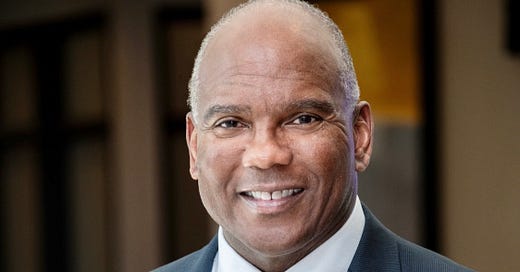


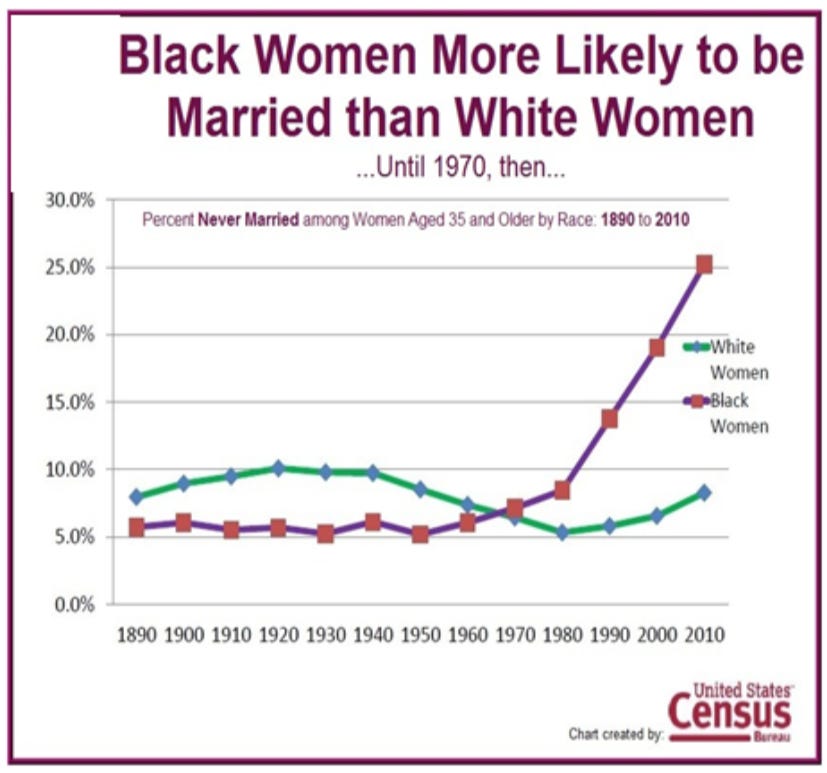
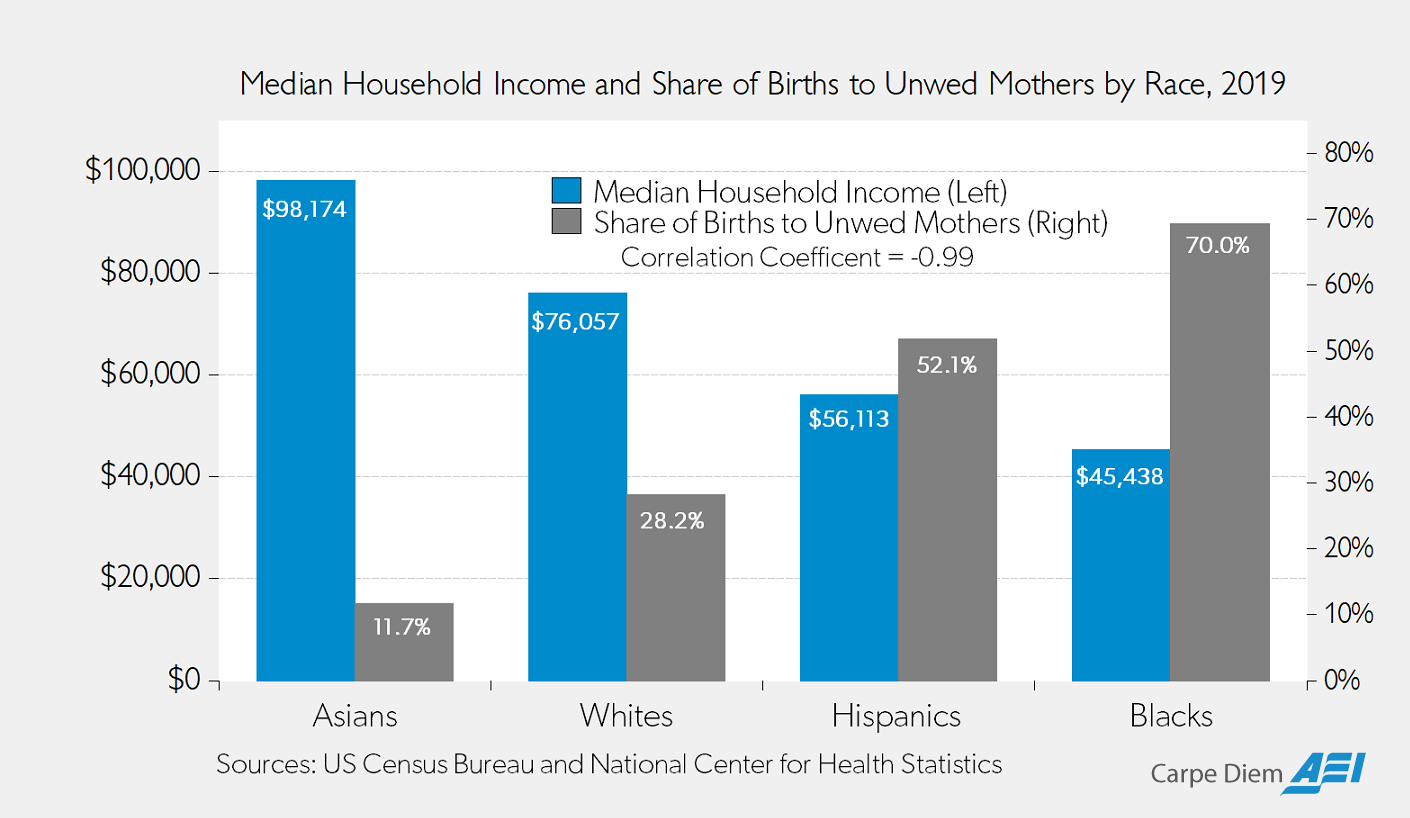
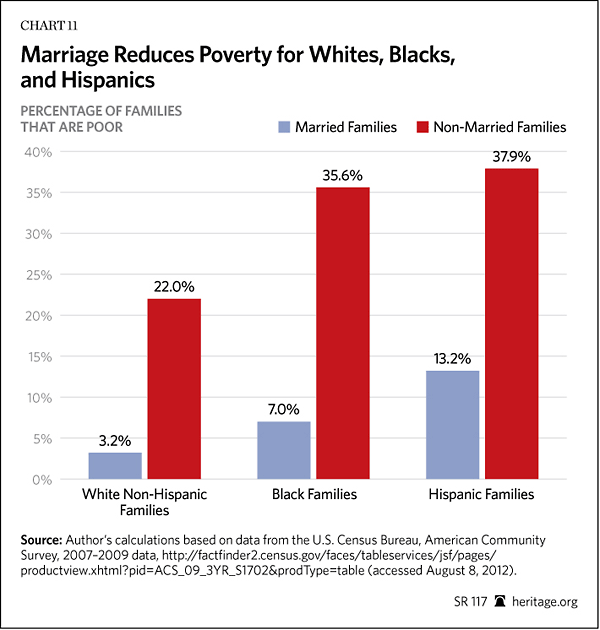
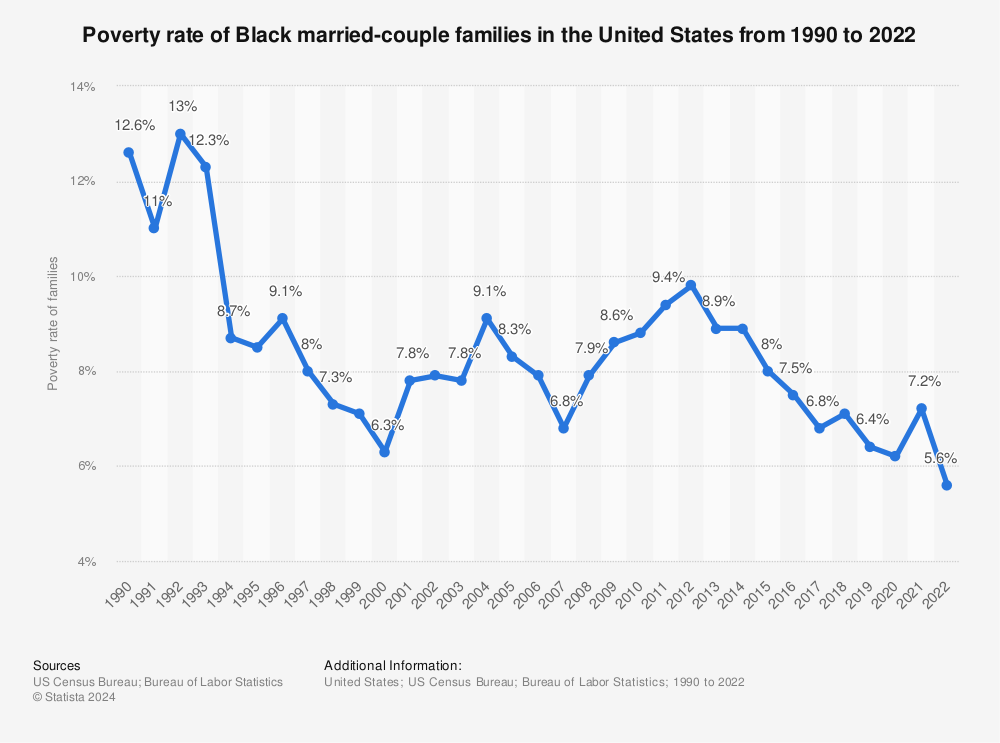
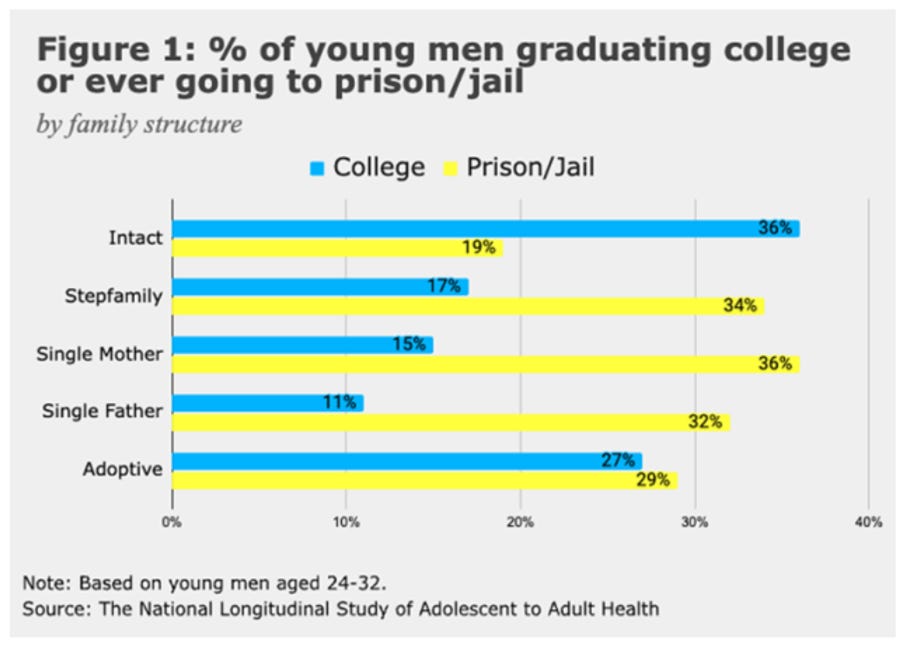

“The lack of urgency on this matter among black leadership is scandalous and reeks of the pursuit of personal interest above the pursuit of the interest of black Americans.” You got it. This is a powerful article, but as you clearly know, in today’s culture your data will be rejected as we are in a “post truth” era and the notion of “family” is another example of “oppression”. It breaks my heart. Still, you’re part of a small but increasing “counter-revolution” of brave souls who actually care about the need for young people, all people, to have a chance for happiness and a constructive meaningful life. Thank you.
This has always been the real atrocity against black people. The psychology of entitlement is a total dead end, leading to the destruction of a future. Desert the children and the rest will follow. Withholding the key to hope is soul destroying; purposely gutting it deserves damnation. It gets...silence.